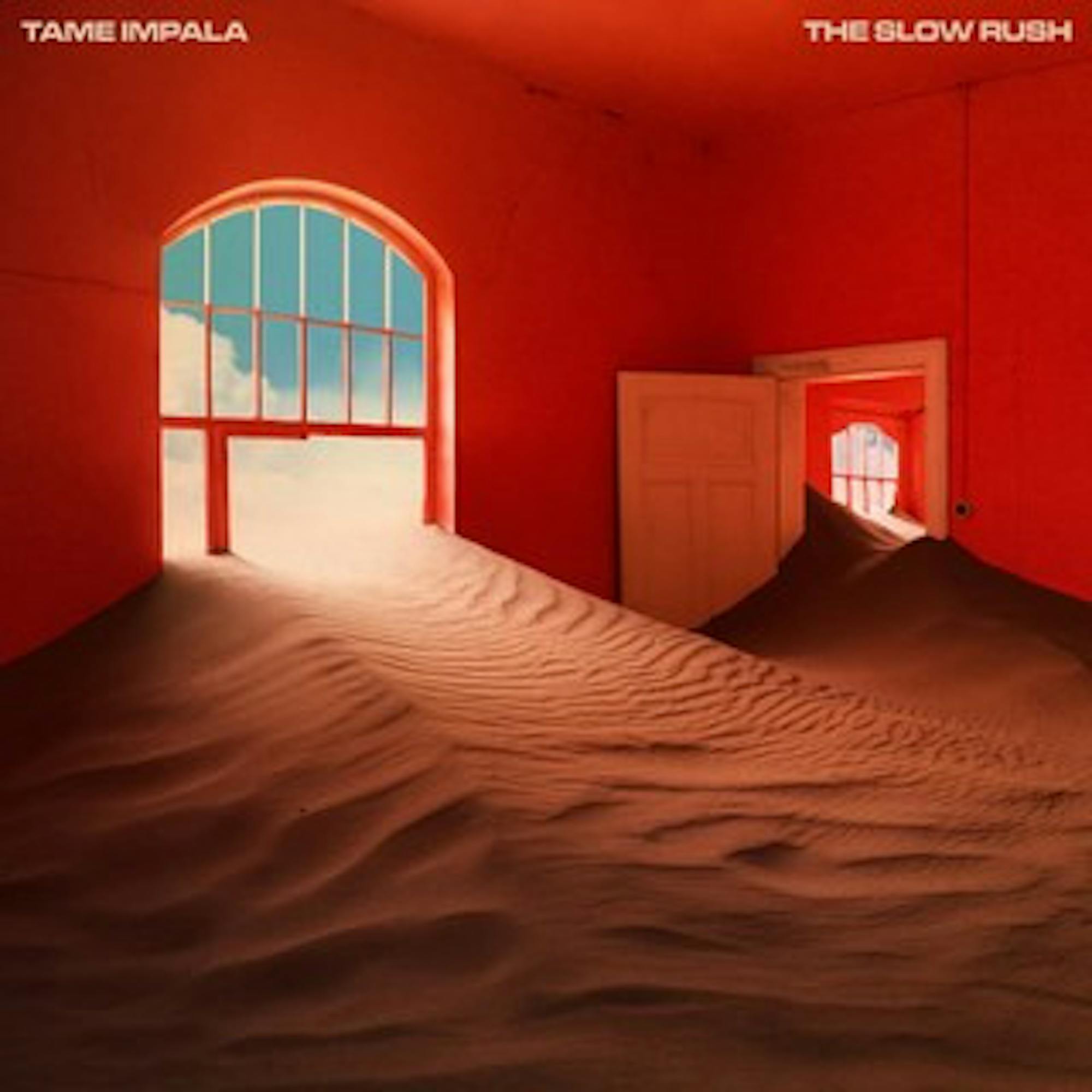It has been over four years since “Currents” (2015), but Kevin Parker’s Tame Impala is finally back with more hypnotic musings on life’s various milestones, relationships and questions — this time with a focus on danceable drumlines and a notable absence of guitar. This completes a three-album long descent in guitar prevalence as “Lonerism” (2012) featured the instrument more heavily than did “Currents," which also features it more often than last week’s release, “The Slow Rush” (2020).
Unfortunately, what Parker trades away in instrumental variation is, in equal measure, made up in musical monotony. This is not to say that the sparkling strings, distorted bass, oscillating synths and charcuterie board of psychedelic effects are not entrancing. It’s just that there are not many moments on the album that stand out.
The best stretch of songs fall in the heart of the order — a reworked “Borderline” (which is one of the album’s lead singles), the album zenith of “Posthumous Forgiveness" and the catchy “Breathe Deeper." Outside of these, there are just a handful of fascinating musical elements.
The aforementioned three songs are an incredible core for the album. “Borderline” has by far the most infectious drumline — hard-hitting and rhythmically pleasing. The chorus — with its sparsity of words per line — and the drums are a match made in music heaven. The album version is sneakily better than the single version, as there are added background effects and instruments that enhance the song considerably.
“Posthumous Forgiveness” is the best song of “The Slow Rush,” and one of Tame Impala’s best ever. The song is split into two main sections, but the first, longer section has a few subsections of its own. Each instrument is used in multiple ways on this song, depending on the section, with the variation of drumlines being the most noticeable. The song’s peak is the minute leading up to the end of the first major section and the beginning of the second major section. It is completely devoid of vocals, features what sounds like a back-and-forth between different distorted horns and concludes with a rapid drumline synced onto synths — as overwhelming a section of music as any ever created. The second major section of the song is completely different from the first, but equally impressive. This section much more heavily features Parker’s impeccable falsetto capabilities. On top of the sonic elements, the title of the song is brilliant and the lyrics are a deeply moving and profound examination of the relationship between a father and a son.
“Breathe Deeper” holds the catchiest tune of the album and the best example of a very 80s-disco feel that can be heard on other album tracks such as “Lost in Yesterday” and “Is It True." The strings in this song are mesmerizing as well. “Breathe Deeper” and the preceding“Posthumous Forgiveness” are two of the three longest tracks on the album — coming in at six minutes, thirteen seconds and six minutes, six seconds, respectively — and neither waste a second, completely filling the time with luscious sounds.
Speaking of time, the driving concept of this album is just that: time. The opening and closing tracks are respectively named “One More Year” and “One More Hour.” Other songs have time embedded in their titles — “Tomorrow’s Dust,” “Lost in Yesterday” and “It Might Be Time.” Unfortunately, the overarching concept of time comes off somewhat arid, as the individual themes within songs often fall back onto old Tame album tropes like loneliness. In this way, the lyrical content of the album feels like it amounts to less than the sum of its parts.
As mentioned before however, the lack of standout moments — outside of the “Borderline” to “Breathe Deeper” stretch — is the most disappointing aspect of the album. There are few, if any, moments like the groovy guitar intro on “The Less I Know The Better” or the earth-shaking drums at the beginning of “Feels Like We Only Go Backwards.” This has never been an issue for Tame Impala albums until “The Slow Rush,” and hopefully it is not one on the Tame's future projects.
Tame Impala's 'The Slow Rush' doesn't meet expectations

The cover of "The Slow Rush" (2020) by Tame Impala is pictured.
Summary
"The Slow Rush" underwhelms, but is not by any means bad.
3 Stars





